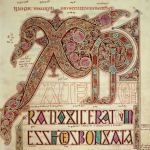During my Lenten reading, I recently came across a passage from John Tauler, a 14th-century German mystic. Although written centuries ago, the words felt strikingly modern. He spoke to one of my own greatest failings, and what may be the defining sin of the contemporary era: self-righteousness. The belief that we are more enlightened, more moral, and more just than than others pervades contemporary discourse. The natural consequence of this is a decline in love for one’s neighbor. John Tauler writes:
“The devil… tempts us to self-righteousness and to thinking of our neighbor and his works as inferior to our own. Thus we deprive ourselves of love by judging others and by depreciating their works; the result is that our words turn into arrows of deadly poison shot from a bow. And what is the target of these arrows? It is our own souls, which they pierce with the wounds of everlasting death, and everything we had stored up in our measure is now spilled and lost. A more terrifying and distressing process cannot be imagined.”
It is indeed a frightening image, and all to real in my own life.

Self-Righteousness as Self-Harm
A new weeks ago, I yelled at a relative who didn’t deserve it. I did it because I was feeling hurt about homophobic comments I had seen online. I was also feeling extremely self-righteous. So when my loved one asked a question about something I had written previously, I reacted by calling him names and shouting. Now, this isn’t to say that my specific knowledge on this issue is irrelevant, but I had no reason to expect this person to know everything I know. Nor did I have reason to assume bad intentions. If anything, I wanted to assume bad intentions because that would justify my self-righteousness.
Naturally, I felt badly about my behavior afterward. I apologized, something which he said wasn’t necessary, and we moved on. I was lucky that in the end it didn’t change our relationship, but it could have. The harm that I could have done to myself by damaging an important relationship wasn’t worth it. And yet, this wasn’t the first time I’ve done something like this, and I worry that it won’t be the last. It’s a habit, and it’s pervasive.
Civility vs. Genuine Love
If I could fall into unfair assumptions about someone I know well, think of how is it is to make assumptions about people I don’t know. Faceless avatars in my comments section and usernames on Twitter are easy targets for self-righteous anger. To be clear, sometimes people say genuinely hateful things. These are not worth engaging with. But as Christians we are called, first and foremost to love. Loving people is not the same as “being civil” or “just being nice.” Love isn’t a passive state, but an active state. Sometimes it requires serious pushback, sometimes it requires standing your ground. But it also means that, no matter what is said, we keep in mind that other people are human. This is true even if they do not feel that way about us. Because dehumanizing other people is damaging to our own souls. It hardens our own hearts, bringing us farther from God. And nothing is worth that.
Genuine Humility Connects Us to Christ
Humility does not mean thinking little of oneself. Instead, humility recognizes that all human being are alike in dignity. Therefore, it is not possible to be better than another person. It does not mean that we ignore the failings in others, but only that we recognize the failings in ourselves. Humble people can be just as passionate as self-righteous people, but they confront the world with love rather than anger. They base conflict in dignity, not in scorn. Humility heals the poison of self-righteousness, because it operates like Christ the Good Doctor. Christ, who was God Himself, still managed to be humble. He, who had every reason to be self-righteous, to be shocked at the hatred and ignorance of everyday people like us, chose love instead. We have no choice but to be humble ourselves.
















